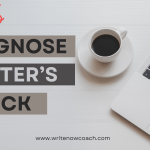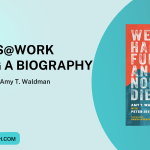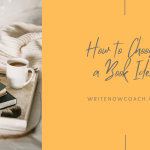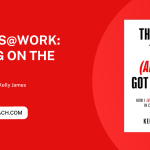How Procrastination Can Boost Creativity
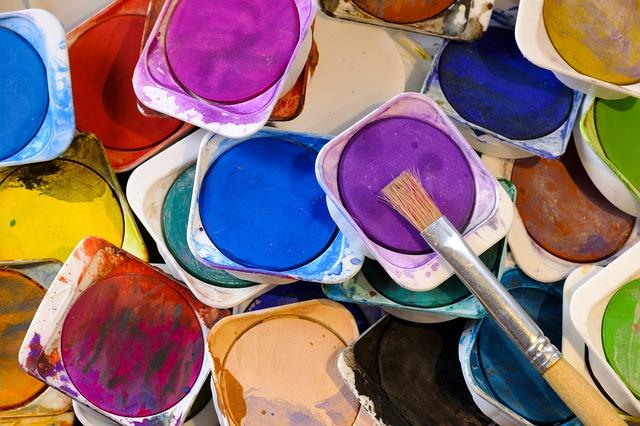
How Procrastination
Can Boost Creativity
by Rochelle Melander
Are you a procrastinator or a pre-crastinator? Procrastinators put off doing the big things, sometimes until the last minute. Pre-crastinators get stuff done quickly—although not always the right stuff—way ahead of deadlines.
How Pre-Crastination Kills Creativity
I’m a precrastinator. I get stuff done…early. If I have a speaking gig in a few months, my talk is done weeks in advance. If I have an article deadline, I line up the interviews as soon as the assignment lands in my inbox. But pre-crastinating is not always a good thing. In fact, I think it can kill creativity.
Scientists believe that people pre-crastinate because we want to shuck off the weight of worrying about the unfinished task and enjoy the feeling of being done. Plus, we get a little boost from the feeling that we finished something. (You might be one of the people who write tasks on their to-do list just to cross them off: Get up. Yawn. Stretch. Eat.)
But by getting stuff done early and quickly, we sometimes speed by the necessary steps of learning by “trial and error.” We stifle our creativity—choosing the first solution but not necessarily the best or most innovative. As David Rosenbaum and Edward Wasserman wrote in Scientific American:
“Trial-and-error learning is the most reliable way we discover what does and doesn’t succeed in everyday life. Such learning can even prompt practical behavioral innovations. Given these benefits, it may be better to gain experience from several trials than only a few.”
Practices that Boost Creativity
But pre-crastinators and procrastinators alike can increase their creativity by trying some intentional practices.
Schedule deadline-free playtime.
While deadlines can release a rush of adrenaline-fueled creativity, when you’re up against the clock you don’t have the time to play around with different ways to tell the story or give the talk or anything else. You need to be done—today. Creativity takes more than innovation. It takes time.
Try this. If you have a project you really care about, schedule time now to experiment with ideas and words. It helps if you can do this regularly—at least once a week. And here’s a tip: we tend to be more open to innovative thinking when we are tired.
Go forth and explore!
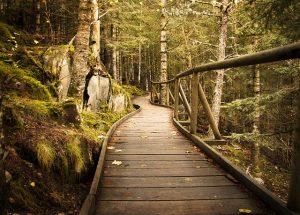 Commit to learning new ideas, trying unique foods, taking adventures, and traveling to interesting places.
Commit to learning new ideas, trying unique foods, taking adventures, and traveling to interesting places.
According to an article by Brent Crane in The Atlantic, “Neural pathways are influenced by environment and habit, meaning they’re also sensitive to change: New sounds, smells, language, tastes, sensations, and sights spark different synapses in the brain and may have the potential to revitalize the mind.”
New experiences stimulate our brain and help us connect ideas, information, and experiences. These new connections can radically affect our creative work. As Steve Jobs said,
“Creativity is just connecting things. When you ask creative people how they did something, they feel a little guilty because they didn’t really do it, they just saw something.”
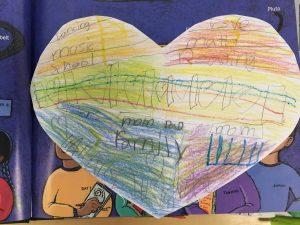 Pro Tip: If creativity is connecting things, then you might boost your creativity by playing mash up game: combine unlike things and see if it sparks ideas for you. For example, when I teach writing to kids, we often do a map unit. They can map anything they like—their heart, the territory under their beds, or a zombie’s brain. This unleashes amazing stories and pictures. (Check out the picture book My Map Book.)
Pro Tip: If creativity is connecting things, then you might boost your creativity by playing mash up game: combine unlike things and see if it sparks ideas for you. For example, when I teach writing to kids, we often do a map unit. They can map anything they like—their heart, the territory under their beds, or a zombie’s brain. This unleashes amazing stories and pictures. (Check out the picture book My Map Book.)
Discover Personal Creativity Boosts
Discover your creativity triggers and use them. While new experiences and mashing up old ones reliably boost creativity, I’ve written other activities that aid creativity such as daydreaming, idle time, and exercising.
But what works for me might not work for you. Everyone has activities that encourage creativity. Children’s book author Dori Chaconas dreams up new ideas and great dialogue while she irons! You might discover that cleaning bathrooms, antiquing, or sleeping releases your creative juices!
Try this: Consider the activities, places, and people that spark your imagination. Make a list and then schedule an artist’s date for yourself.
How Procrastination Can Boost Your Creativity
 And now we get to the click-bait title: can procrastinating boost your creativity? Sure it can. Especially if you procrastinate wisely. Use your procrastination time to be creative in some of the ways I mentioned above: Daydream. Walk. Rest. See a movie or a play. Read a book. Clean the house (repetitive activity leads to aha moments).
And now we get to the click-bait title: can procrastinating boost your creativity? Sure it can. Especially if you procrastinate wisely. Use your procrastination time to be creative in some of the ways I mentioned above: Daydream. Walk. Rest. See a movie or a play. Read a book. Clean the house (repetitive activity leads to aha moments).
Several years ago, my colleague Peg Rousar-Thompson wrote an article for the blog called, The Art of Procrastination. In it, she wrote about her habit of procrastinating by making art—and how that leads to deep insights about her characters, setting, and storyline. She ended it this way:
So my point in all of this? True writers–those of us meant from birth to use words to express ourselves–are writing even when it appears we are not. It’s not something we can escape or control. Even when it appears we have abandoned our essays and novels and poems for knitting or bookbinding or building tiny copper roofing out of cardstock–those words are still writing themselves in our heads.
As long as we provide ourselves with opportunity to sit and do the writing, okay, so force is sometimes necessary, due to that legitimate form of procrastination, we shouldn’t feel guilty for developing these other ways of creating.
It’ll all lead to the words. Eventually.
Your Turn
If you need support overcoming procrastination, set up a complimentary consult with me. If you have ideas to help readers, leave a comment below!



